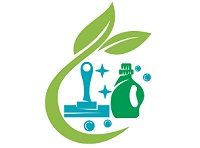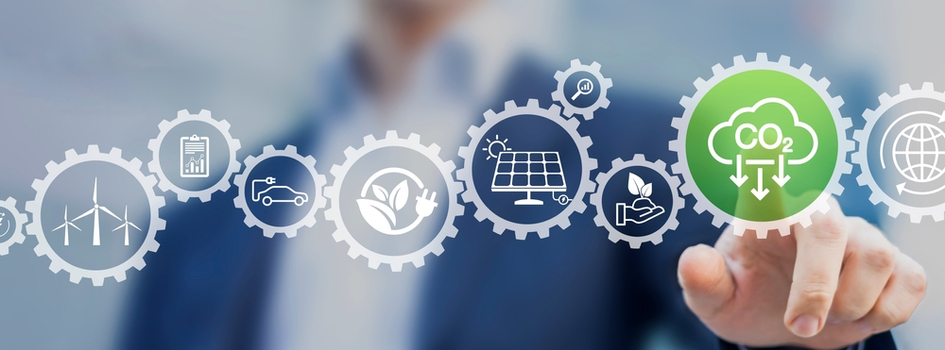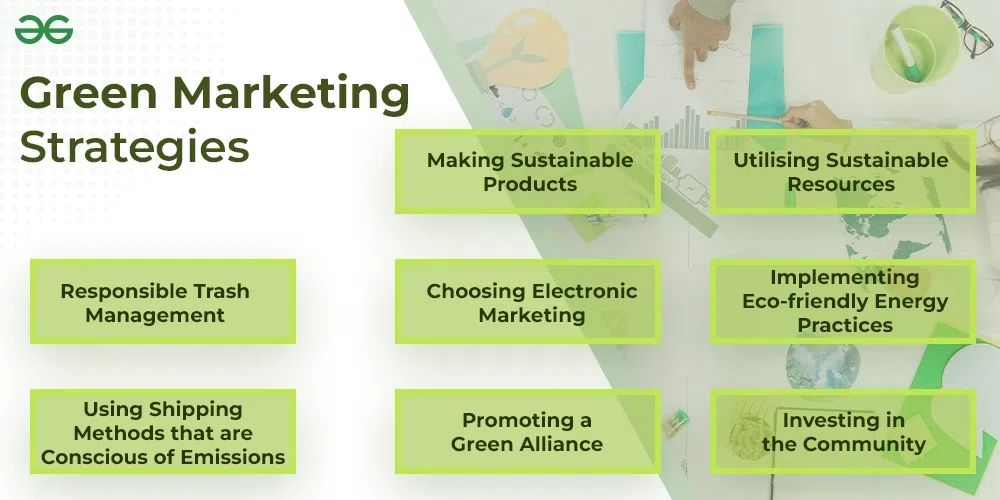Eco-conscious Business Certifications: What You Need to Know
Eco-conscious Business Certifications: What You Need to Know
Are you ready to dive into the world of eco-conscious business certifications? Get ready to navigate the sea of sustainability with our guide, ‘Eco-conscious Business Certifications: What You Need to Know.’
Just like a compass pointing you in the right direction, this guide will steer you towards understanding the types of certifications available, the criteria for earning them, and the benefits they bring.
We’ll also explore how these certifications contribute to a greener future and provide you with steps to begin your own certification journey.
So, grab your snorkel and let’s start exploring the depths of eco-conscious business certification together!
Key Takeaways
– There are various types of eco-conscious business certifications available, such as LEED, B Corporation, Cradle to Cradle, Green Seal, Fair Trade, and Energy Star.
– To earn these certifications, businesses need to implement eco-friendly policies, engage in sustainable sourcing and supply chain management, demonstrate transparency and accountability, and meet specific criteria set by each certification.
– Obtaining eco-conscious certifications can provide benefits such as differentiation from competitors, enhanced brand reputation, customer loyalty, attracting investors, and potential cost savings.
– These certifications contribute to sustainability by reducing environmental impact, promoting conservation of natural resources, driving innovation, continuously improving environmental performance, and contributing to the overall sustainability of the planet.
Types of Eco-Conscious Business Certifications
If you’re an eco-conscious business, you may be interested in learning about the various types of certifications available to showcase your commitment to the environment.
One of the most well-known certifications is the Leadership in Energy and Environmental Design (LEED) certification. This certification is focused on the design, construction, and operation of green buildings. It evaluates a building’s performance in areas such as energy efficiency, water conservation, and sustainable materials.
Another popular certification is the B Corporation certification. This certification verifies that a business meets certain social and environmental standards. B Corps are legally required to consider the impact of their decisions on their workers, customers, suppliers, community, and the environment.

The Cradle to Cradle certification is another important certification for eco-conscious businesses. It evaluates products based on their sustainability and circularity, ensuring that they’re designed with the intention of being reused or recycled.
These are just a few examples of the certifications available to eco-conscious businesses. By obtaining these certifications, you can demonstrate your commitment to sustainability and gain recognition from customers who value environmentally responsible practices.
Criteria for Earning Eco-Conscious Certifications
To earn eco-conscious certifications, you must meet specific criteria that demonstrate your commitment to sustainable practices and environmental stewardship. These criteria vary depending on the type of certification you’re seeking, but generally, they include:
– Implementing eco-friendly policies and practices: This involves adopting measures to reduce waste, conserve energy, and minimize your carbon footprint. It may include using renewable energy sources, promoting recycling and composting, and implementing water conservation initiatives.
– Engaging in sustainable sourcing and supply chain management: This criterion focuses on ensuring that your business partners and suppliers also adhere to environmentally-friendly practices. It involves sourcing materials and products from sustainable sources, promoting fair trade, and reducing the use of harmful chemicals in your supply chain.
– Demonstrating transparency and accountability: This criterion emphasizes the importance of maintaining accurate records and providing regular reports on your environmental performance. It includes tracking and monitoring your progress, conducting regular audits, and engaging in open communication with stakeholders.
Benefits of Obtaining Eco-Conscious Certifications
By obtaining eco-conscious certifications, you can reap a multitude of benefits that showcase your commitment to sustainability and attract like-minded customers and investors.
One of the main advantages of having these certifications is the ability to differentiate yourself from competitors. With the growing concern for the environment, consumers are increasingly seeking out businesses that align with their values. By displaying eco-conscious certifications, you can demonstrate your dedication to environmental stewardship and gain a competitive edge.
Furthermore, obtaining eco-conscious certifications can enhance your brand reputation. When customers see that you have taken the extra step to meet rigorous sustainability standards, they’ll view your business as trustworthy and responsible. This can lead to increased customer loyalty and positive word-of-mouth recommendations.
In addition, eco-conscious certifications can also attract investors who prioritize sustainability. Many investors are now placing a greater emphasis on environmental, social, and governance (ESG) criteria when making investment decisions. By obtaining eco-conscious certifications, you can signal to these investors that you’re a sustainable and socially responsible business, increasing your chances of securing funding or partnerships.
Lastly, obtaining eco-conscious certifications can lead to cost savings. By implementing sustainable practices and reducing your environmental impact, you can lower your energy and resource consumption, resulting in reduced operating costs over time.
How Eco-Conscious Certifications Contribute to Sustainability
When pursuing eco-conscious certifications, you consistently contribute to sustainability by implementing and maintaining environmentally responsible practices. By obtaining these certifications, you actively engage in the following ways:
– Reducing Your Environmental Impact: Eco-conscious certifications require you to assess your current practices and make necessary changes to minimize your impact on the environment. This includes implementing energy-efficient technologies, reducing waste generation, and adopting sustainable procurement practices.
– Promoting Conservation: Eco-conscious certifications often emphasize the importance of conserving natural resources. Through these certifications, you’re encouraged to implement strategies that conserve water, reduce greenhouse gas emissions, and protect biodiversity. These efforts contribute to the overall sustainability of our planet.
– Driving Innovation: Pursuing eco-conscious certifications can inspire you to think creatively and find innovative solutions to sustainability challenges. These certifications often require businesses to continuously improve their environmental performance, which can drive the development of new technologies and practices that benefit both the company and the environment.
Steps to Start Your Eco-Conscious Certification Journey
To begin your eco-conscious certification journey, start with researching the various available certifications. There are several reputable organizations that offer eco-conscious business certifications, each with its own set of criteria and standards.
One of the most well-known certifications is the Leadership in Energy and Environmental Design (LEED) certification, which focuses on sustainable building practices. Another popular certification is the B Corporation certification, which assesses a company’s overall social and environmental performance.
Additionally, you may want to consider certifications specific to your industry, such as the Forest Stewardship Council (FSC) certification for businesses involved in forestry or the Cradle to Cradle (C2C) certification for companies in the manufacturing sector.
Once you have identified the certifications that align with your business goals and values, take the time to thoroughly understand the requirements and application process for each certification. This may involve reviewing documentation, attending information sessions, or reaching out to certification organizations for guidance.
It’s important to note that each certification has its own timeline and costs associated with the application and assessment process. By conducting thorough research upfront, you can make an informed decision and set realistic expectations for your eco-conscious certification journey.
Frequently Asked Questions
Are There Any Financial Incentives or Grants Available for Businesses Pursuing Eco-Conscious Certifications?
Are there any financial incentives or grants available for businesses pursuing eco-conscious certifications?
Yes, there are. Many governments and organizations offer financial support to businesses that are committed to obtaining eco-conscious certifications. These incentives can include grants, tax credits, and low-interest loans.
How Long Does It Typically Take for a Business to Obtain an Eco-Conscious Certification?
Typically, it takes a business some time to obtain an eco-conscious certification. The process involves thorough evaluation of your operations, policies, and practices to ensure they meet the required standards.
You’ll need to gather and submit relevant documentation, and undergo inspections or audits. The duration can vary depending on various factors, such as the complexity of your business and the certification body’s processes.
However, with dedication and proper planning, you can successfully achieve an eco-conscious certification for your business.
Can a Business Lose Its Eco-Conscious Certification if It Fails to Maintain Certain Sustainability Standards?
Yes, a business can lose its eco-conscious certification if it fails to maintain certain sustainability standards. These certifications aren’t permanent and require ongoing commitment to environmental practices.
If a business fails to meet the required standards, it can result in the revocation of its certification. It’s important for businesses to consistently uphold their sustainability efforts to ensure they maintain their eco-conscious certification.
Are There Different Levels or Tiers of Eco-Conscious Certifications That Businesses Can Achieve?
Yes, there are different levels or tiers of eco-conscious certifications that businesses can achieve.
These certifications recognize the varying degrees of sustainability practices implemented by businesses.
By obtaining higher levels of certification, businesses demonstrate their commitment to environmental responsibility and sustainable practices.
These tiers often involve meeting specific criteria such as reducing carbon emissions, implementing renewable energy sources, and promoting waste reduction.
Achieving higher certifications can enhance a business’s reputation and attract eco-conscious consumers.
Are There Any Industries or Types of Businesses That Are Not Eligible for Eco-Conscious Certifications?
There may be certain industries or types of businesses that aren’t eligible for eco-conscious certifications.
It’s important to research the specific requirements and criteria for each certification program to determine if your industry or business type is eligible.
Factors such as the nature of your business, its impact on the environment, and the sustainability practices you have implemented will likely be taken into consideration.
Conclusion
So now you know the importance of eco-conscious business certifications.
By understanding the different types, criteria, and benefits, you can take steps to contribute to sustainability.
Starting your eco-conscious certification journey wo a fantastic read n’t only benefit your business but also the environment.
So go ahead and make a difference by becoming an eco-conscious certified business.



